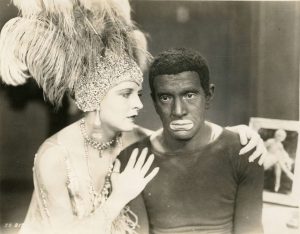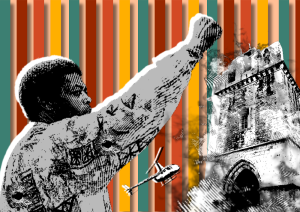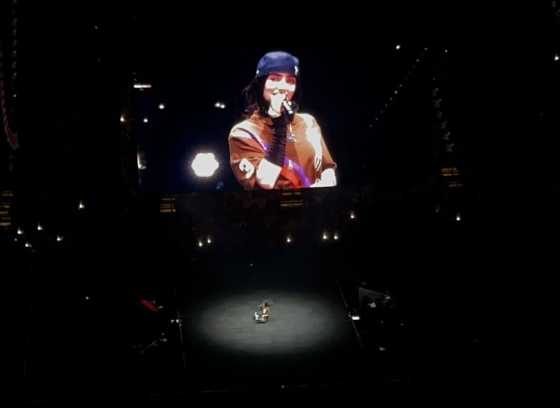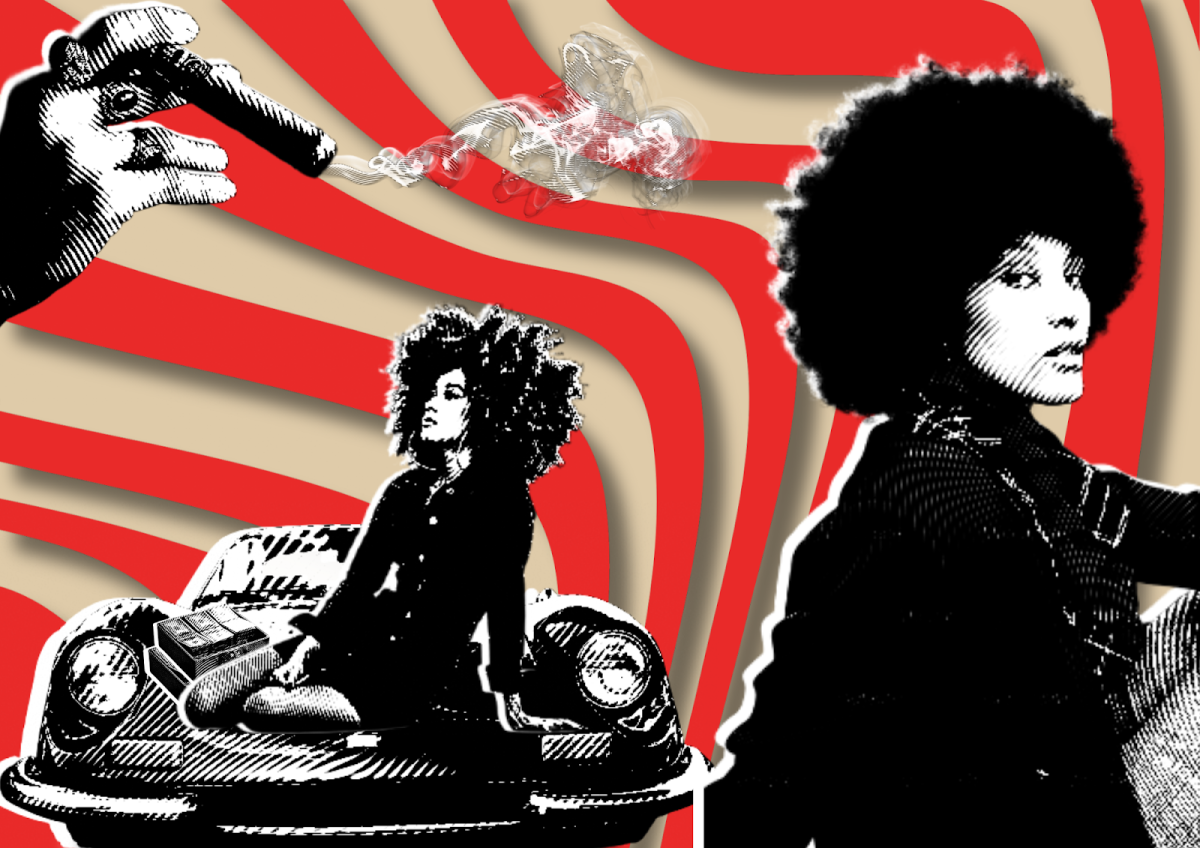A week ago, during a casual visit to YouTube, I came across a video about Pam Grier and some of the juicy scandals that she went through in her life. Near the middle of the video, the creator went off on how much of an important figure Grier was during the Blaxploitation era of film.
When I heard the term Blaxploitation in the voiceover, initially I immediately thought of negative connotations of race. But in fact, the way the creator described Blaxploitation did not carry the harmful weight that I assumed it would.
Dating back to the ‘70s, film studios combined “Black” and “Exploitation” together, which became the popular and loved film genre “Blaxploitation.” The movies of Blaxploitation had many of the negative stereotypes that continue to plague black people to this day: gangs, gun violence, prostitution. All of that while wearing the most outlandish outfits and using jazzed up street slang in every sentence.
It is understandable that people do not want to see themselves as a stereotype in cinema, but did it really hinder the community when black people were getting paid and booked in films that they otherwise would not have even been in without Blaxploitation?
To start off, it is important to know what exactly an exploitation film is. Exploitation films are usually low-budget movies that feature extreme plots like cannibalism, gore, drugs, sexual liberation and other taboo subjects, exploiting the audience’s intense desire to see lurid content and sensationalist events in cinema.
Like exploitation films, Blaxploitation satiated the longing to see black people portrayed in movies, no matter how cheaply made the film is.

The more that African Americans heard messages containing the need for self-determination, the more they wanted to have the power to depict themselves in cinema instead of relying on white filmmakers to do so. Before, the only representation black people truly had on screen were sidekicks, servants, victims and just white actors or cartoon characters like Mickey Mouse prancing around in blackface.
With Blaxploitation films however, black characters played the roles of countless protagonists where their stories and communities were being taken seriously. In stories like these, the audiences would see stereotypical lead roles like drug dealers, gangsters and bounty hunters transition into the hero who saves everyone in the end.
More times than not, Pam Grier portrayed many different strong, black female characters, soon becoming an icon of black agency. A lot different from the usual black characters who had a hand in playing out the “Mammy” stereotype.
The usual racist tropes in popular films were flipped so that black audiences would feel connected to the stories. In these films, white authoritative figures were the villains being taken down. Instead of black people being portrayed as taking oppression without a second thought, they actively fought against it, which massively empowered the black community.
It carved out a vital space for black talent to share their stories and experiences on screen, it is not like black people could relate to all of those minstrel shows on television.
The genre was flourishing throughout the early 70s’. By 1976, black filmmakers produced approximately 200 films (which made millions at the box office). Blaxploitation films opened various opportunities for black filmmakers, actors and writers that were often not there prior to the start of this genre.
That is not to say that black people in the film industry were not there before Blaxploitation films, but it is true that these films opened the door for a multitude of black writers to come inside an industry that most of the time was not that open to them. Even though there were positives to Blaxploitation, some thought the opposite—specifically the National Association for the Advancement of Colored People (NAACP).

It was not just the NAACP who were not fans of the genre, many other African critics wanted nothing more than to have Blaxploitation off of the big screens. A coalition was formed between the NAACP, National Urban League and the Southern Christian Leadership Conference to take down Blaxploitation, their efforts succeeded.
With the backlash that Blaxploitation received, films were not being made as much as they used to be. The very ones who benefited from Blaxploitation as actors or writers were now facing unemployment. There was a decline in output by black people in cinema that would go on until the 80s’ and 90s’ with the new rise of black films with directors such as Spike Lee and John Singleton.
The NAACP and others worked to get what was progressing their own people in the film industry setback. The fact that an activist group put time and effort into stopping the success of their own people because they believed it did not make them look presentable is counterintuitive. Advancement until it is something one finds not good enough does not make much sense.
Even if it was stereotypical, it is not like what they were doing in the genre was not of any substance.
Bruce Lee is often credited with changing how Asian people were presented on the big screen. Before him, a lot of Asian characters were written to be weak, unassuming and for white actors dressing up in yellowface. But when Lee came around, that stereotype was broken by his ever-so-present masculinity and strength. Martial arts movies are not even close to being all that Asian actors can accomplish nowadays, but back then, that was the predominant role for both Asian actors in cinema.
It was not much, but Lee did what he could and for that Asian cinema was transformed for the better. You can apply this to Blaxploitation. While the roles were not all that, Blaxploitation had a long-lasting effect on America and how black stories were told.
These films inspired future generations to go out and write their stories on their own terms, not just because of what others may think. People do not like to see themselves presented in a way that they think would make other races see them in a negative light. But as history goes to show, some were thinking that without being needed to see it on screen.
The genre gave black people a spot in an industry that is otherwise not known for making that room.
No one is able to deny that black people actually have a place in cinema because of the Blaxploitation Era. They were thriving on screen and outside of it; there are too many instances where no one knows exactly how to write a black character or wanted to, but with Blaxploitation and it being a movement of black directors and writers, that kind of miscommunication/mistreatment really did not happen for the reason solely based on skin color.
So did Blaxploitation hinder or help black people in the end? It depends on how its impact is perceived—if one thinks the genre only intensified stereotypes that only did more harm than good, they will say hinder. However, considering that people were employed and were making money to feed their families in an industry that did not pay black people much positive attention— Blaxploitation helped the black community immensely.










































































